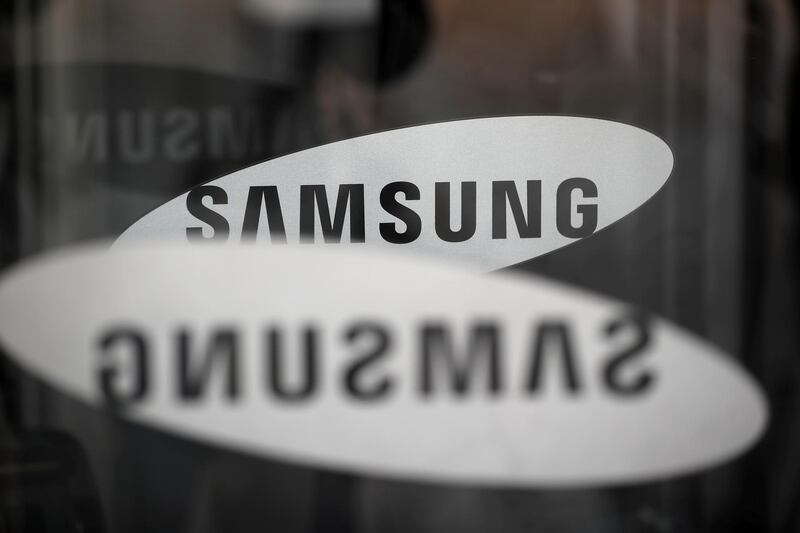Samsung Electronics expects operating profit to tumble 56 per cent for the second quarter of this year in the face of a weakening chip market, the company said on Friday.
The world's largest manufacturer of smartphones and memory chips has enjoyed record profits in recent years despite a series of setbacks, but the company is now struggling due to weak demand in an oversupplied market weighing on chip prices.
Operating profit for the April to June period is forecast to reach around $5.6 billion (Dh20.57bn), down 56 per cent from a year earlier, Samsung said.
Revenue is expected to fall 4.2 per cent. The company is scheduled to report final results later this month.
It is the flagship subsidiary of the giant Samsung Group, the biggest of the family-controlled conglomerates that dominate business in the world's 11th-largest economy, and it is crucial to South Korea's economic health.
Samsung launched its top-end S10 5G smartphone earlier this year, after South Korea won the global race to commercially launch the world's first nationwide 5G network.
In April, it made a high-profile decision to push back the release of its new Galaxy Fold phones after reviewers provided with early devices reported screen problems within days of use.
While Samsung's device was not the first folding handset, the smartphone giant was expected to help spark demand and potentially revive a sector that has been struggling for innovations.
The South Korean company had spent nearly eight years developing the Galaxy Fold as part of its strategy to propel growth with ground-breaking gadgets.
The company is yet to announce its new release date.
Samsung supplies screens and memory chips for its own smartphones and Apple, and server chips for cloud companies such as Amazon.
But it is also one of the major semiconductor manufacturers that are being affected by Tokyo's recent restriction of exports to South Korea.
The measures, which raises the stakes in a protracted dispute over South Korean court rulings requiring Japanese companies to compensate victims of a wartime forced labour policy, are expected to significantly slow the export of several key materials used by Samsung.
Tadashi Uno, display research director at IHS Markit, said an end-product that could be affected by Tokyo's newly announced restrictions is Samsung's Galaxy Fold.
"The display of the Samsung Galaxy Fold – now in pre-order status in the US – is produced utilising fluorinated polyimide film from Sumitomo Chemical, which is a Japanese electronic materials firm," he said.
"South Korea-based Kolon Industries could act as an alternative supplier for the Samsung foldable smartphone display."
Samsung is also set to unveil its latest phablet, the Galaxy Note 10, in New York next month, but analysts say it is unclear whether the cutting edge products would do well in the global market.
"Unlike South Korea, many countries are still without 5G network," said CW Chung, an analyst with Nomura Securities in Seoul.
"And this gives overseas customers fewer reasons to buy a 5G phone, which also happen to be quite expensive."







